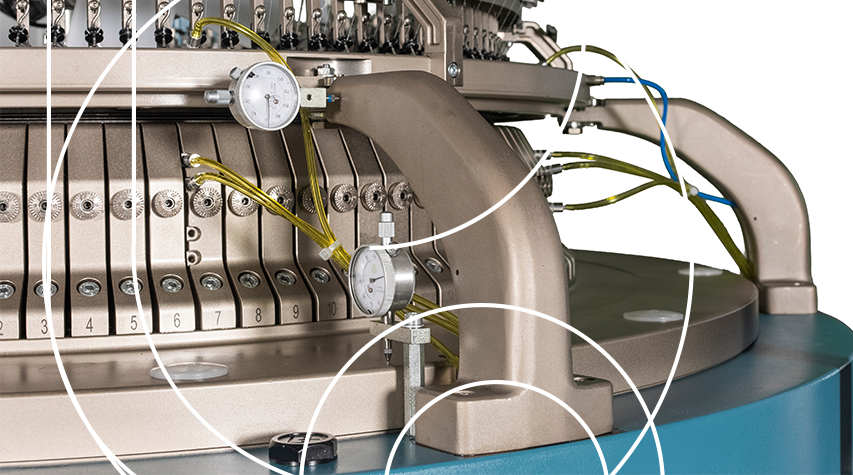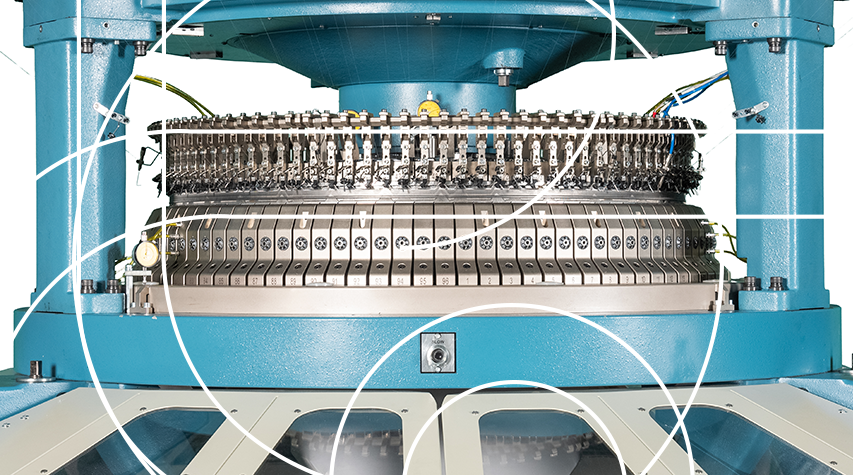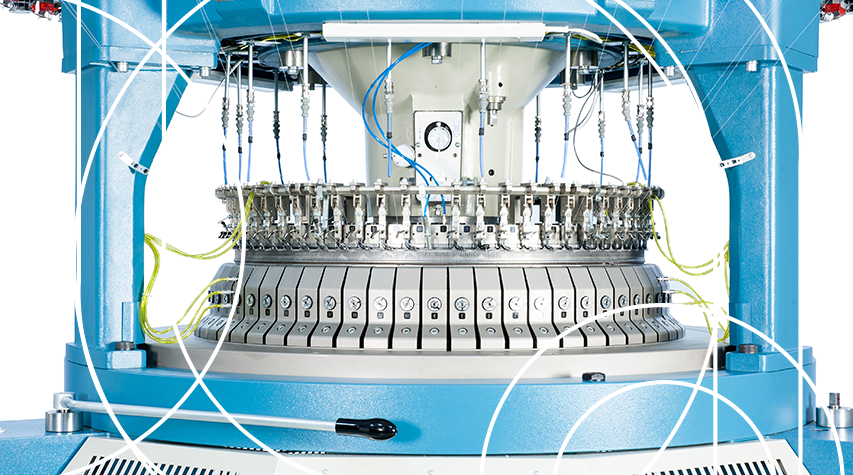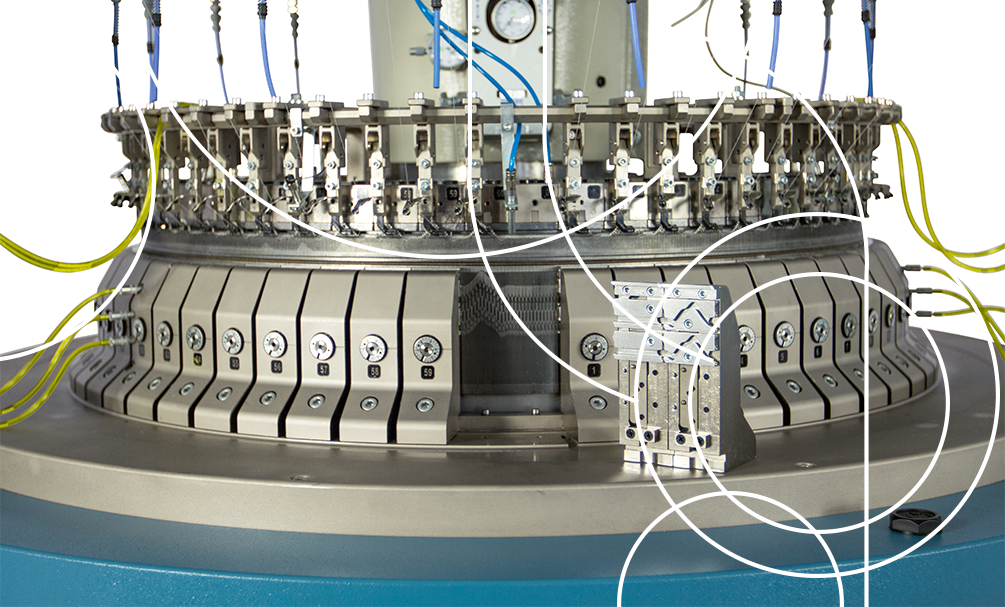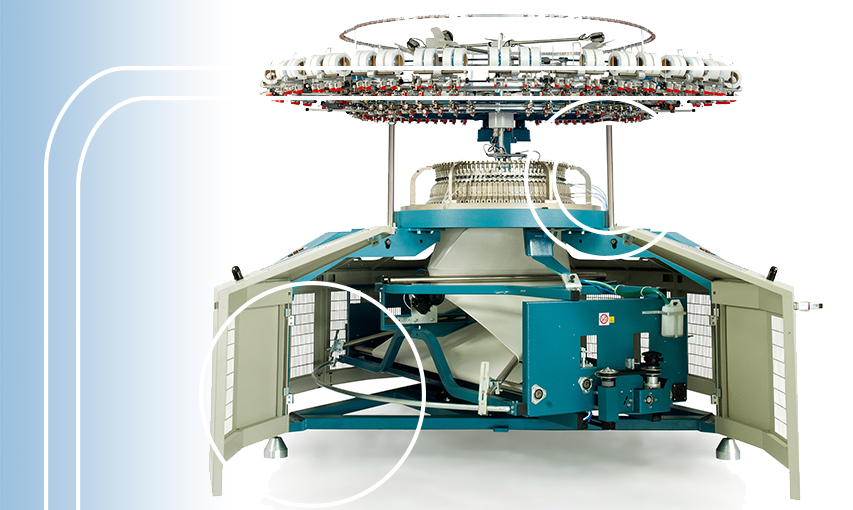Large Diameter Machinery
Learn more about large diameter circular technology and what it has to offer!Learn more about large diameter circular technology and what it has to offer!
In this showcase we will cover the characteristics and benefits of large diameter circular knitting machines, its numerous application possibilities, and the products and fabrics which can be achieved with this technology.
Before we begin with the technology, let’s cover some basic elements of knitting technology:
Knitted Loop structures
Loop: The very basic element of a knitted structure is a loop, which is a meshed yarn at its base with previously formed basic units (stitches).
Needle loop: This is the part of a stitch, drawn through the head of the preceding stitch. It consists of the head and the two shanks of the stitch.
-
Head: Technical back
-
Limbs/pillar: Technical front
-
Sinker loop: The piece of yarn which joins one weft of a knitted needle loop to the next
-
Sinker loop or underlap: Technical back
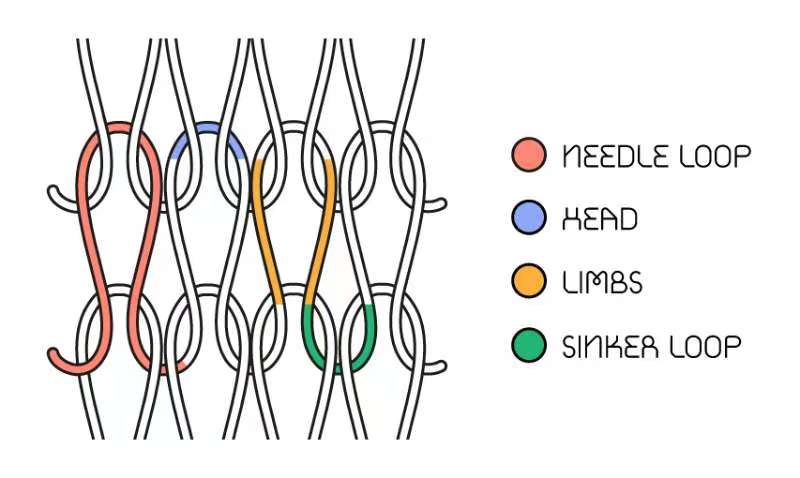
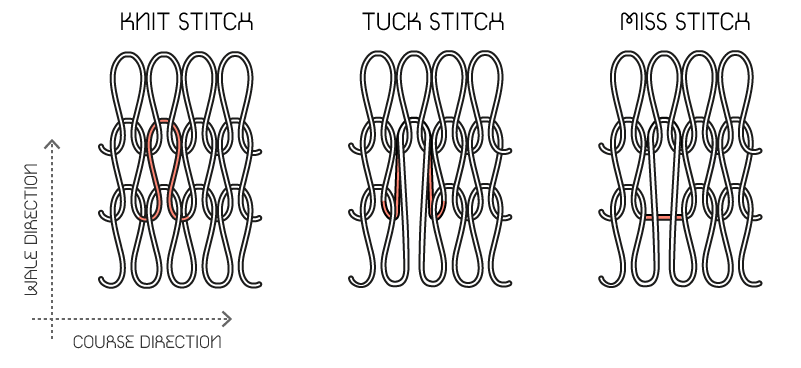
Basic loops can be classified into:
-
Knit - Tuck
- Miss stitch or float stich
Knitted Fabric
Knitted fabric consists of forming yarn(s) into loops, each of which is typically only released after a succeeding loop has been formed and intermeshed with it so that a secure ground loop structure is achieved. The loops are also held together by the yarn passing from one to the next.
If you would like to learn more about knitting structures, you can visit our showcase “Knitting Tech and Applications” here.
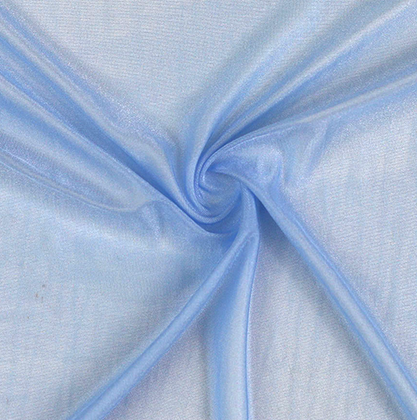
The construction of large diameter knitting machine
Large diameter machines come in two different models: single and double jersey. Depending on the model, they range from 26”- 42” in diameter. Large diameter machines are characterized by their high efficiency, capability of achieving a very fine gauge, and user-friendly software. These machines are excellent for fleece and stretch materials with elongation. Common applications of garments made using this machinery include underwear, swimwear, and outerwear among many others.

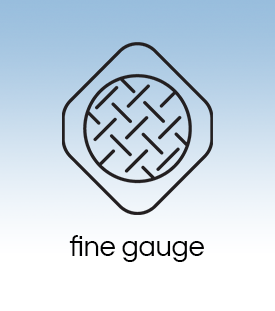
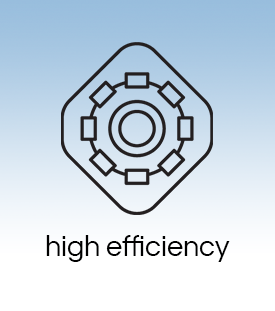



Knitting system
The knitting system includes a cylinder (dial), needle, sinker, cam, cam box, sinker ring, sinker cap, yarn feeder, and more. It is the heart of circular knitting machines, where a yarn is formed into loops and meshed together in a continuous way.
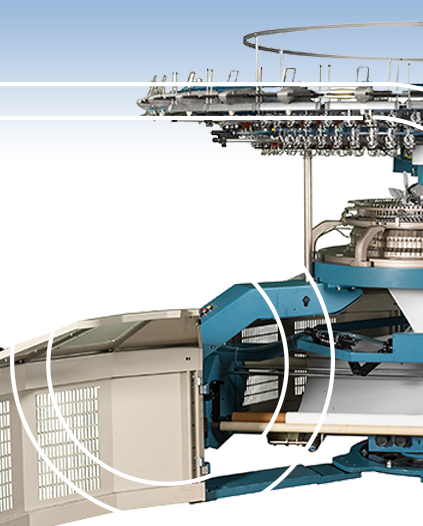
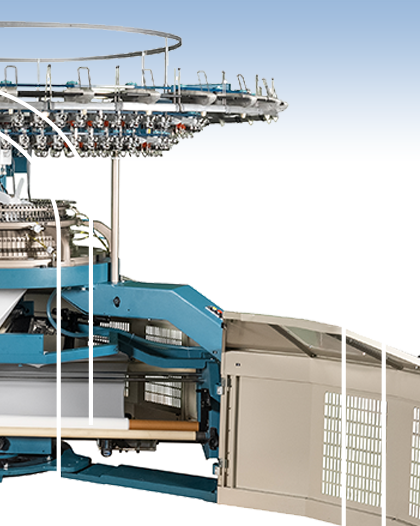
There are two packaging methods:
- Tube
- Open width
You can select a suitable method to avoid folds according to the fabric. It is either cut open and becomes a fabric panel (on a roll) or it stays in tube form (on a roll).


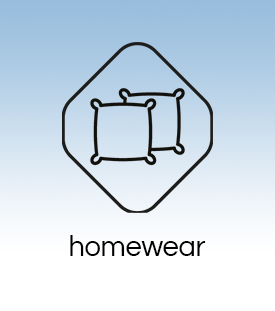
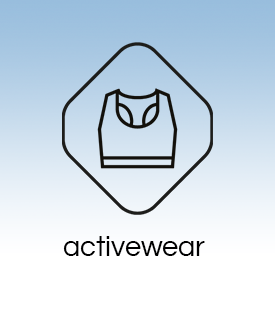
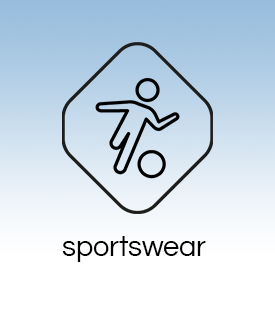

Knitting principle of single-jersey knitting machine
In single-jersey machines, the process starts in the transmission system. The yarn unreels from the bobbin and is sent to the knitting area via the yarn feeding system. Then, the yarn is caught by the needles, which move around the track consisting of cams. The yarn is then formed into loops on the needle step by step:
latch closing → casting-on → sinking → knock over → loop formation → take-up.
During the clearing process, the sinker holds the old loop and prevents it from rising.
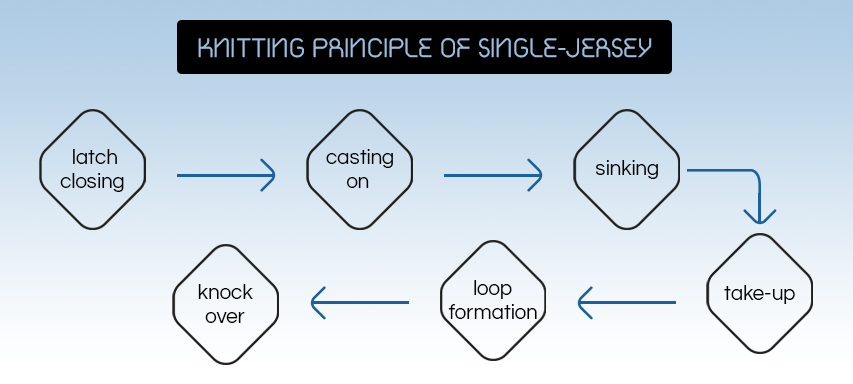
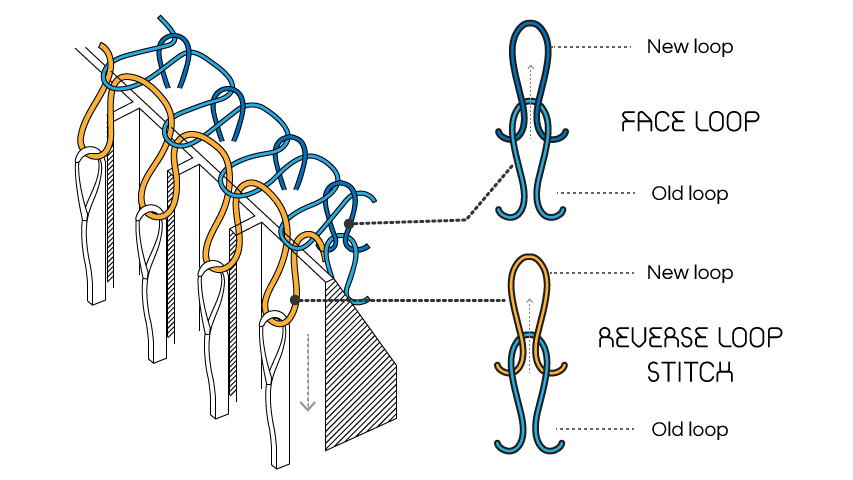
Knitting principle of double-jersey knitting machine
The knitting principle of the double-jersey knitting machine is similar to the single-jersey knitting machine. The main difference is that double-jersey fabric is produced by two sets of needles (cylinder needle and dial needle) being alternately set or gated between each other. Double-jersey fabric has the appearance of plain fabric on both sides.
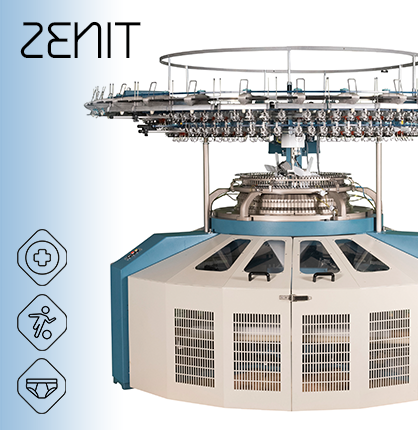
ATLAS (without sinker):
Product Capabilities: plain fabric with elastane, striper fabric with elastane, color jacquard fabric, pique, lacoste, and fleece fabric.
Common Applications: apparel, intimates, activewear, industrial textiles, outerwear.
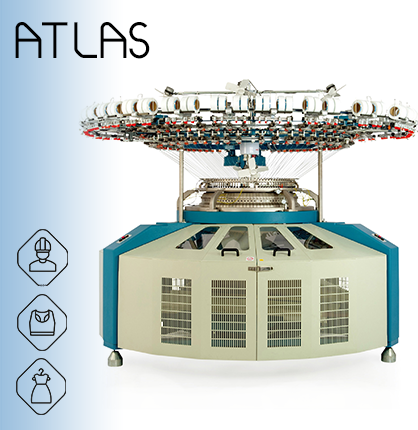
ORION
Product Capabilities: double-jersey fabric with elastane, striper double-jersey fabric with elastane (rib), color jacquard fabric.
Common Applications: underwear, intimate wear, sportswear, activewear, home wear, nightwear.
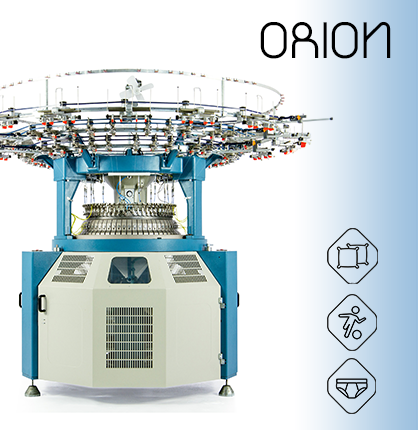
PULSAR
Product Capabilities: double-jersey fabric with elastane, striper double-jersey fabric with elastane (rib), color jacquard fabric.
Common Applications: underwear, intimate wear, sportswear, activewear, home wear, home textiles, loungewear.
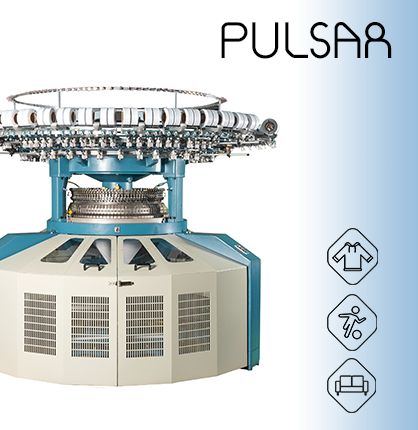
MEC-MOR
Product Capabilities: single jersey fabric, double-jersey fabric, stripe fabric (rib).
Common Applications: underwear, outerwear, footwear, activewear, swimwear.
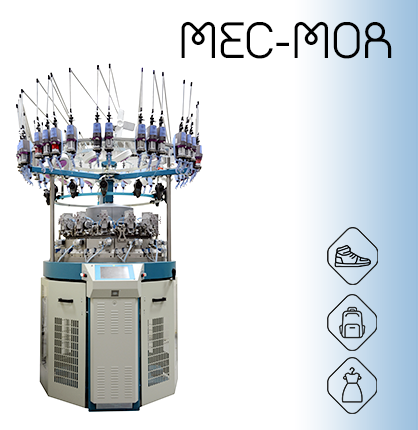
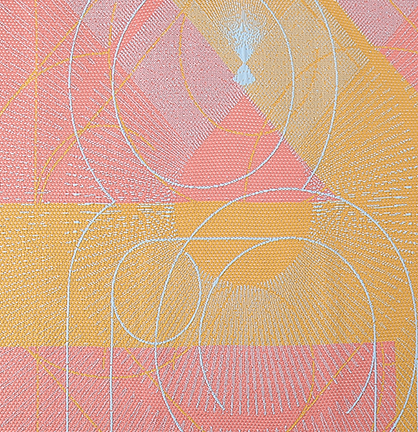
Summary
As you can see, large diameter machinery is highly versatile. Its wide variety of stitches and structures can produce fabric for all kinds of applications, which makes it a favorite among knitters and designers.
Take a deep dive into all of the different swatches and products large diameter machinery can offer by visiting our Library.
Contact us
for a personalized consultancy in large diameter machinery

You might be interested in:
Trend Report: The Art of Texture
A peek into the inspiring work of textile sculptor Simone Pheulpin
Read moreTrend Report: 3D Engineered Exoskeletons
How to create protective textiles inspired by exoskeletons found in nature
Read moreBest Practice: Avoid Fuzz Problems on Top2 Fast
Best practice and recommendations on how to avoid fuzz issues in Top2 Fast
Read more